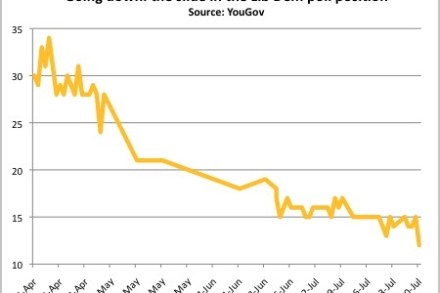Why the government needn’t fear the strikes
With the threat of major strikes timed to coincide with Osborne’s spending review in October, I think it’s worth exhuming an important point that Julian Glover made in his Guardian column last month: “UK politics is often characterised as a contest for the centre ground, but that misdescribes the nature of the quest. Centrism implies banality, but I don’t think voters want their governments to be mundane. There is a willingness to endorse radical action if it is explained and if it looks practicable. It worked for the left under Attlee and Blair; it worked for the right under Thatcher; and it is working – so far – for this
















